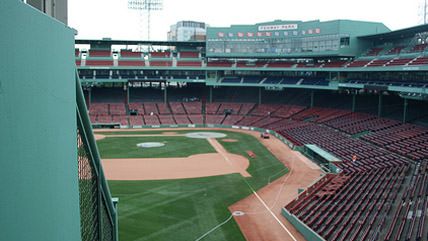No More Tax Dollars for Sports Stadiums
Minor league teams offer empty promises and empty stadiums.

Somebody once said sports reporters are the best writers because they have to come up with new ways to tell the same basic story over and over. If that is true, then those who cover the business of sports may be second-best.
"Officials, Flying Squirrels in Stadium Talks" has been the story here in Richmond, Virginia for several years now. The minor-league ball club is not happy with the Diamond, the current stadium, and would like to move to a nicer facility. Several possible sites have been considered, but nothing has gelled. The team says it is committed to Richmond. Yet in the back of everyone's mind lies the possibility that the Squirrels might grow tired of waiting and pull up stakes. After all, that's just what the Richmond Braves did when Gwinnett, Georgia, built them a new field in Lawrenceville.
If you want to see the instant replay, then watch how the Hagerstown Suns are playing officials in Maryland and Fredericksburg off each other. Last week Fredericksburg's city council "directed city staff to negotiate the terms of a deal to bring a minor league baseball team and multi-purpose stadium to Fredericksburg," reports the Free Lance-Star. "All signs point to the Hagerstown Suns as the team with whom city officials are speaking."
Hagerstown leaders certainly think so. City councilman Donald Munson considers the Fredericksburg move "a serious proposal" and "real competition for Hagerstown." According to the Herald-Mail, "In Hagerstown, a recent study detailed alternative stadium sites in the city, but little progress has been made since. Munson said Fredericksburg's continued interest in baseball is a clear indicator that Hagerstown needs to resolve its stadium issue soon if it hopes to keep the Hagerstown Suns in town."
This, too, is an old story: More than a decade ago, The Baltimore Sun reported: "The owner of the Hagerstown Suns minor-league baseball team said yesterday he would delay putting his team up for sale while officials work out the details of a funding plan for a new stadium."
The specifics of the Fredericksburg deal – should there be one – have not been divulged yet. But the Free Lance-Star's Bill Freehling reports the estimated cost of the facility at $29.5 million, not counting the price of the land. "The team would contribute part of the stadium costs up front. Bonds would be sold, and the debt service would be covered by a variety of sources, [including] lease payments . . . a profit-sharing arrangement . . . tax revenues from the stadium, and a special tax district on commercial real estate."
That last item likely means a TIF district – short for tax-increment financing. The premise behind TIFs is that new projects increase economic activity and raise property values in their immediate surroundings, so a special taxing district simply captures revenue that would not have occurred without the project.
TIFs are a popular economic-development tool – there are thousands of them across the U.S. – but they are open to criticism on a number of grounds. Their boundaries are arbitrary. They can divert revenue from more basic government services, such as schools and police departments. They also can rely on dubious assumptions. E.g.: Is a restaurant in a TIF district really successful because there's a ballpark nearby – or would it thrive regardless?
Speaking of assumptions: Not long ago a consulting group brought in by the Fredericksburg Economic Development Authority produced a stadium feasibility study. Brailsford & Dunlavey concluded that – surprise! –Fredericksburg would be a fantastic place for a minor-league stadium. Its report said the Fredericksburg"market has an exceptionally strong demographic profile for minor-league baseball." At one point consultants even called Fredericksburg an "ideal location."
Funny thing: That's exactly what a consultant's report said about Gwinnett, too: Gwinnett was "an ideal location" and "one of the strongest markets in the country" for a minor-league baseball club.
Just one small problem: Those rosy predictions turned out to be wildly off base. The Gwinnett study – like the one for Fredericksburg – pitched the stadium at a cost of less than $30 million. By the time construction was finished, the price tag had risen to $64 million. Ticket price soared. Attendance fell so far short of projections that the new stadium often is half-empty. Revenue from parking fees tanked. The ancillary development that was supposed to materialize – didn't. Last year the Atlanta Journal-Constitution reported that while "Gwinnett officials [had] said the stadium would pay for itself," it wasn't.
An isolated case? Hardly. Study after study has concluded that sports stadiums do not improve local economies. Think tanks across the ideological spectrum – from the laissez-faire Cato Institute to the centrist Brookings Institution to the left-wing Center for American Progress – all have reached that same conclusion.
There are lots of reasons to want a local ball club. But if Fredericksburg hopes building a ballpark will turn it into Rio on the Rapidan, it might want to dial expectations down a bit.

Show Comments (48)